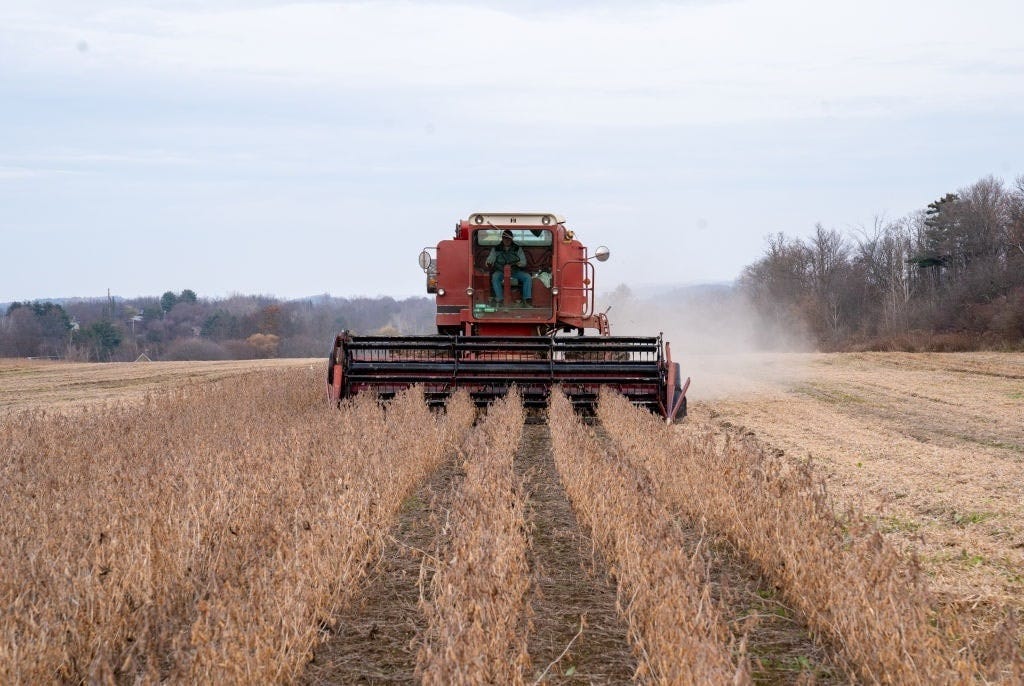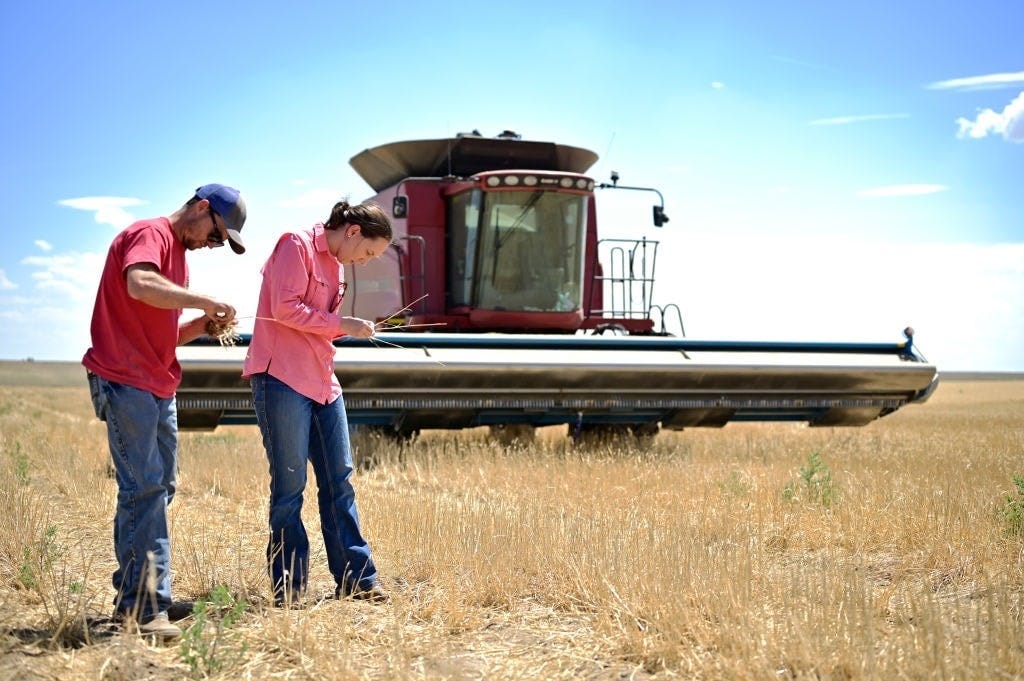(Photo by Robert Nickelsberg/Getty Images)
Globalists and corporate agri-businesses claim technological innovation is the path toward more eco-friendly farming practices, but is this a calculated misinformation campaign to preserve corporate turf? The high productivity of modern industrial farming has been accompanied by dramatic environmental damages for short-term profit that cannot be reversed using more of the same hubris. Monocultures dependent on synthetic fertilizers and tilling have harmed the soil and water; intercropping, multispecies grazing, and other traditional agricultural practices restore and rebuild abused soil microbiomes. An ideological battle is unfolding before the world: It’s out with the new, and in with the old agricultural wisdom.
Wheat, soy, corn, and other “monoculture” crops have predominated over the last century. Many of these are now genetically modified (GMO) varieties dependent on glyphosate and other herbicides for their commercial viability. But these methods are destroying soils and human health. One alternative to monocultured crops is “polyculture,” which includes rotating crops to reduce pests and weeds; undersowing, in which seeds are injected into existing pastures; and intercropping, wherein different plant varieties are sown together.
Polyculture Is the Cure
(Photo by Hyoung Chang/The Denver Post)
Intercropping has been common in Western agriculture for more than five centuries, notably in “maslin,” the co-growing (intercropping) of wheat and rye (also the name of a bread of the same blend). Native American tribes intermingled squash, beans, and corn or other crops to secure soil nitrogen and boost micronutrients. Farming has long valued diversity.
Such traditional methods improve soil health and thus total crop yield, sequestering carbon and reducing weeds, pests, and diseases. This in turn lowers the amount of fertilizers, pesticides, herbicides, glyphosate, etc. required for monocultured crops.
These commonsense farming principles extend to livestock. Grazing animals have different appetites for varying grass and plant species, and it’s more efficient to pasture different animals in the same fields in succession. Sheep, for example, consume grasses and weeds that cows leave behind; pigs or chickens will scratch, thatch, and root the ground afterward, breaking up cowpies.
The benefits of this balanced ecosystem even extend to livestock pathogens. Cattle rotated through a pasture can be followed weeks later by sheep or goats, or vice versa. The sheep will not be vulnerable to cow parasites, just as pigs or chickens following through will not be susceptible to the pathogens from either, and so on. Consequently, the industrial saturation of factory-confined livestock with antibiotics becomes unnecessary, and the use of chemical wormers is greatly reduced.
Cow Manure and Soil
And yet globalists malign cows for their gaseous emissions. In all the cow methane hullabaloo, little attention is paid to cow manure. If animal “rights” activists and climate warriors had their way, the elimination of cows and other valuable livestock would remove the most precious natural agricultural resource from the food chain: manure. Throughout history, farming has depended on organic matter to retain and feed productive soils, which in turn hold more water and carbon.
Healthy soils feed plants. Soil health is not determined by spray-on adjutants, but by the biodiversity of bacteria, fungi, and other underground life that fixes nitrogen and feeds plants. This is also how carbon is sequestered (which also feeds plants vital carbon), recapturing the carbon released in destructive tilling. Healthy soils resist erosion and retain more water.
Smart Farming Is Natural
Those who call to replace cows with synthetic meat would have humanity increase the use of synthetic fertilizers like urea, made from natural gas (aka methane), in order to grow the monocultured crops used to “cultivate” simulated meat products in a laboratory. Instead of balancing species of plants and animals to maximize human and ecological health, such interests would cast more chemicals into the ecosystem and food supplies like a toxic, creeping smog-potion.
Ancient tribes had more sense. A healthy future for farming is rooted in its traditionalist polycultural foundations, not in yet greater industrial subjugation with more technology and chemicals.
(Previously published at Liberty Nation.)





Although it seems like common sense to me, polyculture is the "diversity and inclusion" that I practice on the farm.
It seems clear now, after all the revelations of the plandemic and climate scams, that most scientists have been slow and obfuscating in their discoveries of nature's truths. I believe that, in most cases, corporate and government money is the main driver that influences the focus and outcomes of their studies, for their benefit or that of their overlords.
Anyone who propagates OR believes the lies that tell us cow farts are harmful in any way is deranged, (at best) and so lacking in credibility that they cannot be believed in any way whatsoever about anything whatsoever. Period. Summarily dismissed as lunatics needing psychiatric detention.